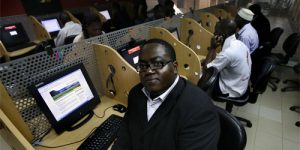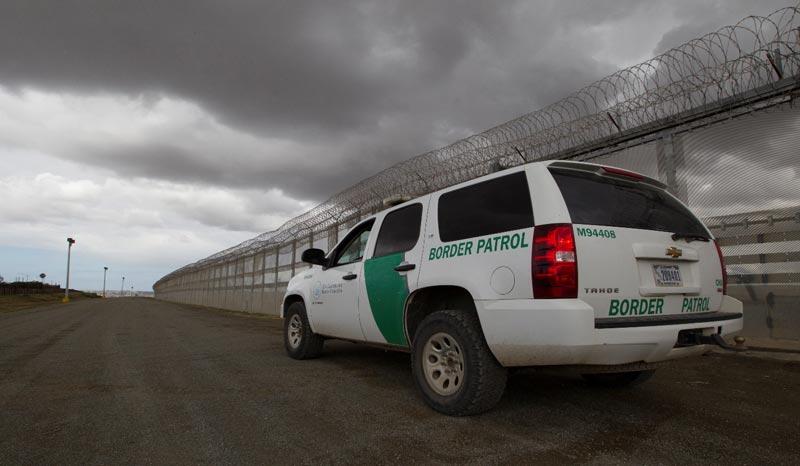(ThyBlackMan.com) “Your content is the shining star that attracts and connects people to your message.” @sherfranklin
This quote is intended to encourage Africans that their thoughts, experiences, and convictions to share their story cannot stop. The opportunity to share life and cultural experiences must be written and blogged about to share a true story of African people, African civilization, African culture and African history.
Blogging opens doorways to learning encouraging intellectual exchanges, building thought leaders, communities of digital cohesion and uniting people of diversity. Unifying people even if they have differences of ideas, religion or philosophy, blogging can be a connection. The connective power of blogging using digital tools allows Africans to share content not just locally, but globally. There was a time the only stories that came from Africa where from mainstream European media that did not share the African story in a positive light, with the use of Social Media and mobile technology accuracy, truth and openness can be shared.
Africans like Michelle Atagana, editor of Memeburn, one of South Africa’s leading tech blogs. Her involvement has seen change s in the influence of writing/blogging. Stating that, “For Africans, in terms of getting online, I would say maybe in early 2004 and 2006, that was the emergence of blogging,” “If you want a magic period, I’ll say 2008 to 2009.” This shows that Africa is not far behind in the world, there are challenges in wired and mobile infrastructures, but this is being addressed by collaboration with mobile tech companies, the military and even non-profit organizations that are servicing the people not just the corporations.
s in the influence of writing/blogging. Stating that, “For Africans, in terms of getting online, I would say maybe in early 2004 and 2006, that was the emergence of blogging,” “If you want a magic period, I’ll say 2008 to 2009.” This shows that Africa is not far behind in the world, there are challenges in wired and mobile infrastructures, but this is being addressed by collaboration with mobile tech companies, the military and even non-profit organizations that are servicing the people not just the corporations.
“Africans cannot afford a poverty of thought or conviction.” Unknown
The ability to share real time content, not just written text, but photos, video and multimedia elements makes a profound statement of truth and reality in Africa. American Social Media is based on the “social” aspects of communication. The day to day events that Americans go through, in Africa the scope is much different, content ranges from economic,
educational, political and cultural exchanges that influence the dynamics of African life. Youth, teens and young adults that have the opportunity to access Wifi or have service providers emulate Americans of similar age with access to music, sports and entertainment. The dynamics of Social Media and blogging are similar, but the foundation is what is happening directly to the mental, physical and emotional well-being of people in cities, towns and even the country side of Africa.
E-commerce is being affected, the power and influence of online information is influencing economic markets. Consumers are able to make choices that they did not have before. To purchase locally and globally in markets once closed to Africans. Business owners like Mike Saunders, CEO of South African digital marketing company, Digitlab has stated that,
“If you have something of value to add to a market, to an industry or to consumers and you share that value with people (through Social Media), you can become very influential with people.” During this growth in infrastructure, mobile devices, and even the educational levels to use diverse technologies Africans are being exposed to a world where they can have instant connection with the world.
Because of the Social Media world opinions will change and the mindsets and perceptions of African people will change, the perceptions of African people will have to change to allow a more inclusive and equitable opportunities in commerce, education, politics and other key areas of growth. Blogging allows the sharing of ideas not just in text on diverse digital platforms, thus creating a powerful tool that influences thoughts.
Africans need to continue to create their own content because Africa needs to continue to grow itself outside of European colonization. The physical colonization has changed, next is the continued psychological ending of being colonized for centuries. Africans must continue to find their Voice, share their stories and build a foundation on intellectualism while building each generation to embrace, strengthen and flex their intellect, their creativity and develop through blogging innovative ideas from African young people.
Everything in Africa is a powerful source of content to be created by Africans of all ages, generations, and educational, economic, cultural and political background. From business and commerce, industry to education, movies to mythology, history and culture, music and the arts, all are fuel for the fire of creativity and innovation in blogging. The higher education system of Africa has a daunting task to build new and empowered educational leaders that will continue to move Africa into the 21st century and beyond. Education is the key to allowing Africans to apply the multi-talented skills needed to forge a new path. African higher education, must work with high schools and lower educational levels to prepare them to be future students in the institutions of higher learning or vocational education.
Content comes in all forms so the educational structure of Africa will have to change in order for its students to graduate with the skills to compete in a global economy.
The comparison can be seen in the power of content, how the writings of Chinua Achebe can be shared through generations by Social Media, the sharing of poetry and short stories by Wole Soyinka and other African writers and story tellers. Branding and marketing can be seen in the similar stories of the Yoruba religion of Africa and Sango, deity representing thunder like Thor the Norse god. Marvel is making millions from this centuries old story of Thor, but just imagine if Sango was used first, how Africa could benefit from the globalized marketing and commerce.
The cognitive and emotional influence to African boys and girls to read an African story that shows their continent on a global platform and encouraging reading, literature, cultural pride and the need for the growth in writing/blogging by more African boys and girls.
There are millions of stories waiting to be told in Africa, it is up to African children, teens, young adults and even adults to start blogging to tell their stories before others grab them and tell a different version and reap the harvest. African’s have been denied for to long to tell their stories, now there is a platform and tools to amplify their voice to enable unity, collaboration and cooperation. Africans have a important story to tell and blogging is the platform to do it.
Staff Writer; William D. Jackson
Find out more about this talented writer over at; OCS For Education.




















Leave a Reply